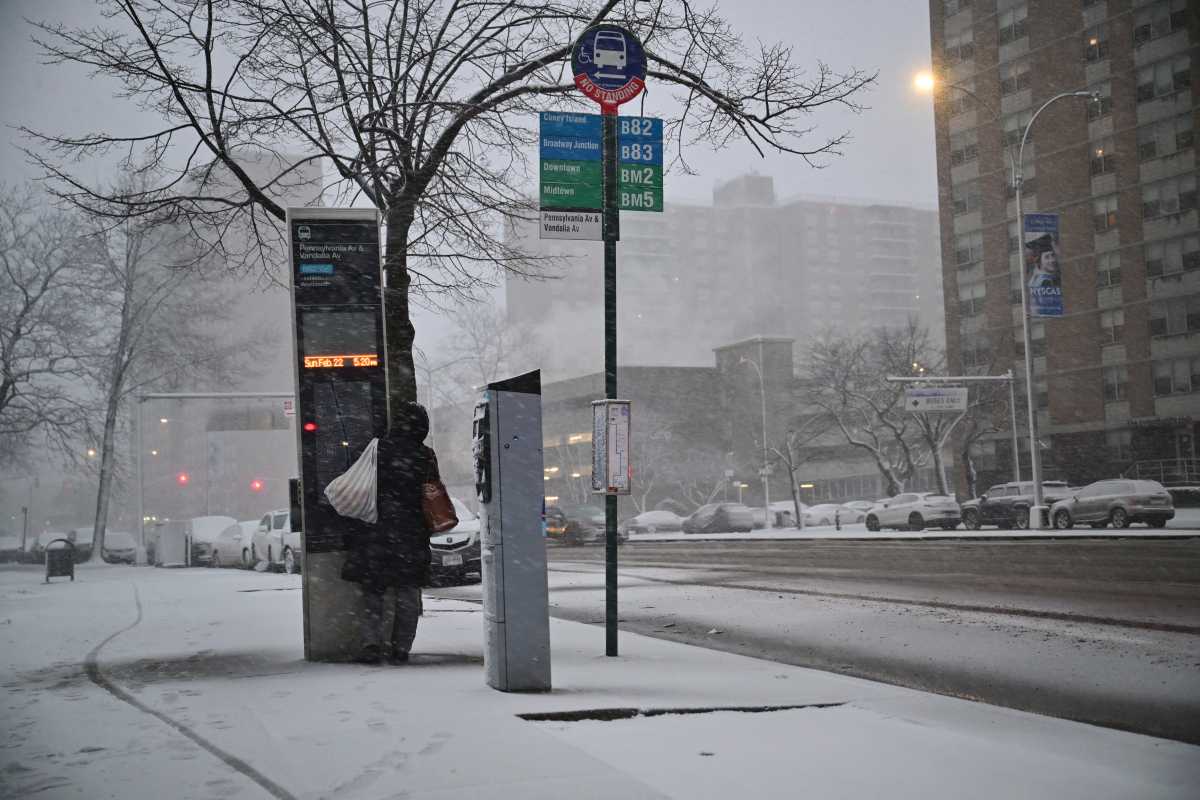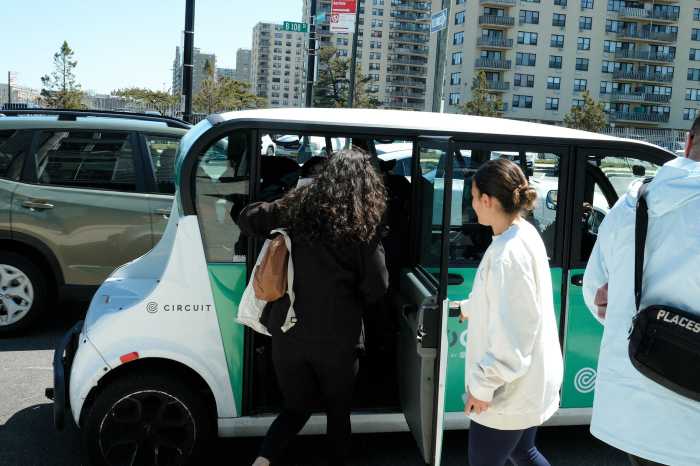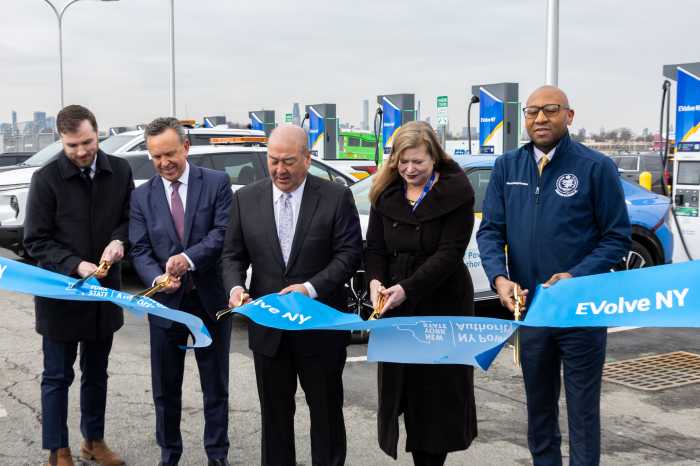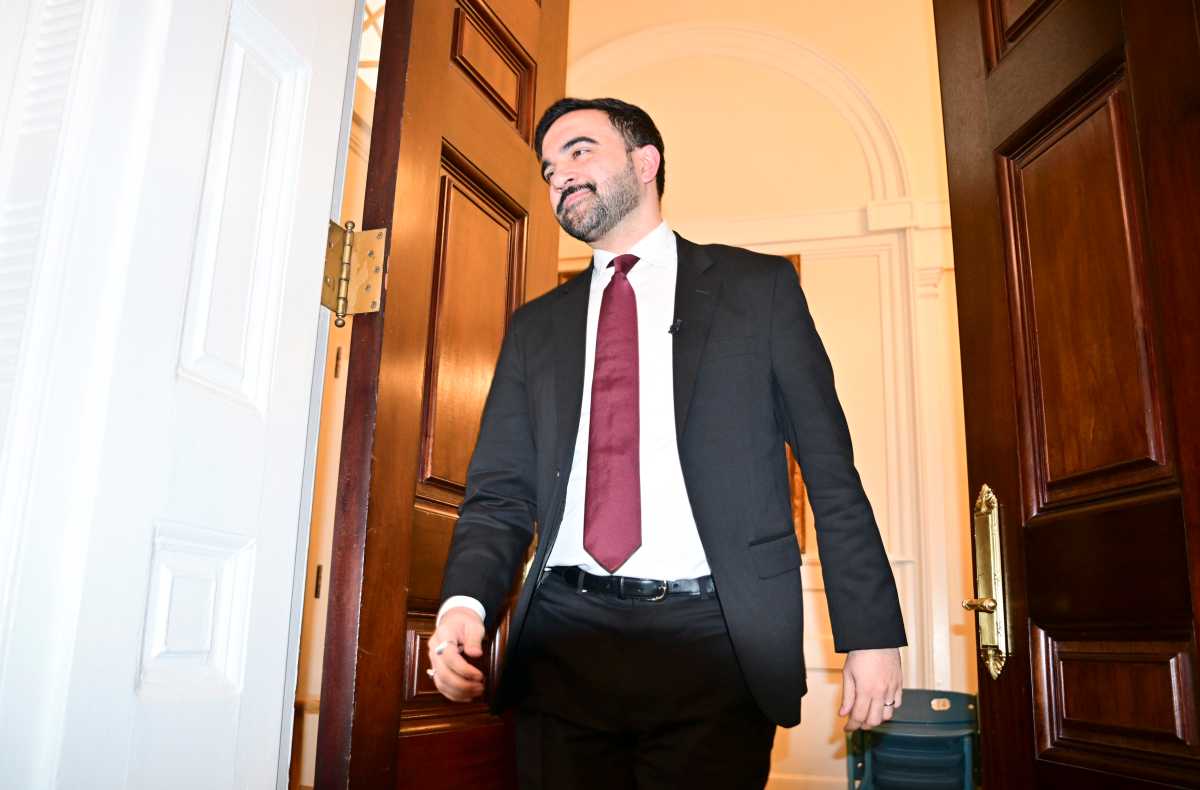By Mark Hallum
The recently released Fix NYC panel report to enact Gov. Andrew Cuomo’s congestion-pricing proposal calls for sweeping change to how cars are charged to enter Manhattan’s most gridlocked sections while keeping historically toll-free East River bridge crossings gratis.
But while many are praising the effort to create a dedicated funding stream for the Metropolitan Transportation Authority to bring the ailing subways into the 21st century, some Queens elected officials stand by their opposition to the EZPass charge of $11.52 for cars entering Manhattan during peak hours. A $25.34 fee would be placed on trucks to encourage overnight deliveries to businesses.
“Tolls must be more fair,” Cuomo said as the plan was unveiled last Friday. “Trips to and from New Jersey can be less expensive than trips from New York City’s outer boroughs. Tolls vary widely, and they must be rationalized so costs are fair to all.
“But, as a born and raised Queens boy, I have outer-borough blood in my veins, and it is my priority that we keep costs down for hardworking New Yorkers, and encourage use of mass transit. We must also find a way to reduce the costs for outer-borough bridges in any plan ultimately passed.”
Other attempts for similar plans have not been so successful. In 2008, Mayor Michael Bloomberg called for a congestion-pricing plan, but it proved to be an unpopular notion and was killed at the state level.
After the system-wide transit meltdown of 2017, though, state government is intent on creating a dedicated revenue stream for the MTA, historically funded through the state budget every year.
Assemblyman David Weprin (D-Fresh Meadows), Councilman Barry Grodenchik (D-Oakland Gardens) and state Sen. Leroy Comrie (D-St. Albans) protested the Fix NYC proposal on the Sunday following the release of the report, contending that outer-borough residents would be disadvantaged by the premium.
“Congestion pricing would be disastrous for Queens, Brooklyn and Long Island residents,” Weprin said. “The tolls would inadvertently place a tax [on] middle-class communities and small businesses in these areas and raise the cost of goods and services from these areas while also limiting the competitive ability of local businesses.
“On top of that, private drivers who rely on the free bridges would have to pay each and every time they travel into the city, in addition to the vehicle registration fees, fuel taxes and other garage fees charged to New York City drivers. New York cannot afford to break the backs and empty the wallets of its outer-borough locals to ‘Fix NYC.’”
After Cuomo’s budget address, Weprin praised the governor’s explicit intention to keep East River bridges, such as the Queensborough Bridge, toll-free. The Fix NYC proposal did not specify whether these crossings will continue to be exempt, but it defined the Commercial Business District, which will be the target of congestion pricing, as all of Manhattan below 60th Street.
Riders Alliance campaign manager Rebecca Bailin accused Weprin and those opposed to the proposal of “grandstanding” and defending people with enough money to own a car over the average city commuter.
“David Weprin is standing up for the few people who are rich enough to drive and park in Manhattan, and he is ignoring the needs of the vast number of working and middle-class New Yorkers who rely on the subway and buses,” Bailin said. “The congestion-pricing plan outlined by the Fix NYC panel is a progressive way to fund urgent repairs to the transit system so that working people can get to their jobs, pick up their kids and keep their medical appointments.
“Today, we’re demanding that Assembly Member Weprin stop grandstanding at the expense of struggling New Yorkers and be part of the solution instead. Our elected officials represent millions of transit riders, and they’d better start acting like they care about our needs.”
Only about 4 percent of drivers are expected to have to pay this fee, according to the report. But Grodenchik argued on Twitter that when you take into account a population in the millions, the numbers have a wider impact than expected.
“I will fervently oppose any congestion pricing plan,” Grodenchik said. “For too long our government has chosen to underfund our mass transit system. Now, to make up for its lack of investment, the State of New York is proposing a regressive tax that will fall squarely on the shoulders of hardworking New Yorkers. If this wrong-headed plan is implemented and ‘successful,’ traffic speed in the core area of Manhattan will still be less than 6 mph, which is a bill of goods I am not interested in buying.”
The Fix NYC proposal supported the governor’s recommendation during the previous week’s budget address to dedicate funds levied from the Payroll Mobility Tax, an annual $1.6 billion, to the MTA for its use updating infrastructure developed around the turn of the 20th century.
“Our transit system is at the breaking point,” said Toby Sheppard Bloch, a Riders Alliance member from Glendale. “Last week a ride that should have taken 20 minutes stretched over two hours. New Yorkers and the economy are suffering lost wages and lower productivity because elected officials have failed to commit sufficient resources to our transportation system. The time has long past to take action, and failure to establish a robust and ongoing funding stream to invest in mass transit will have crushing effects on our city.”
Reach reporter Mark Hallum by email at mhall




































